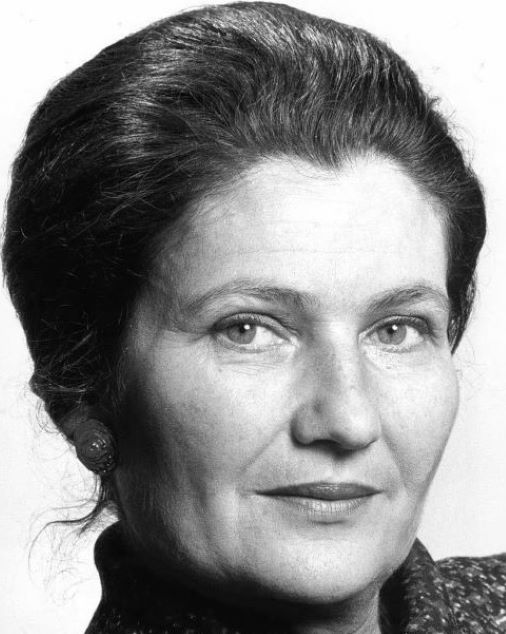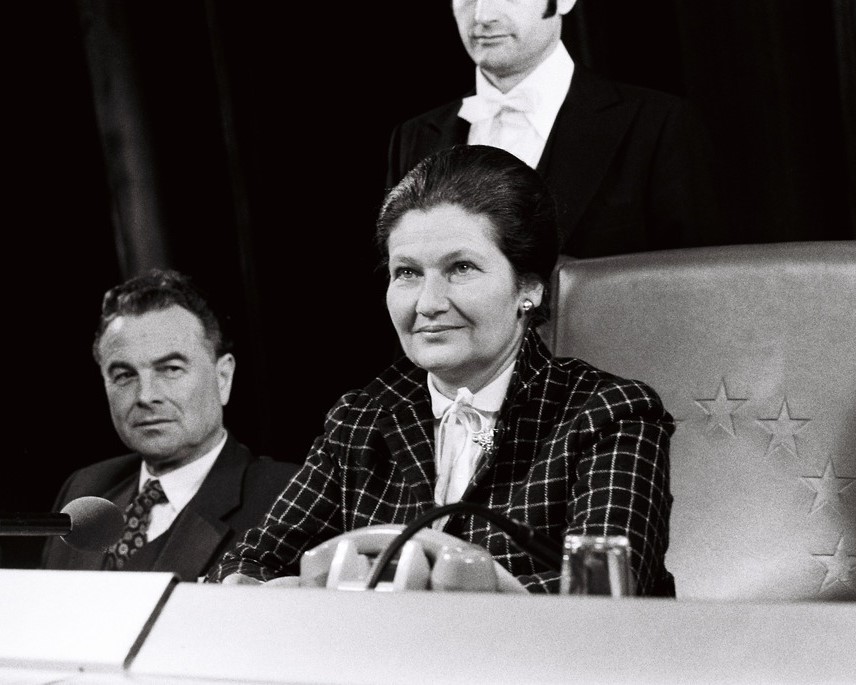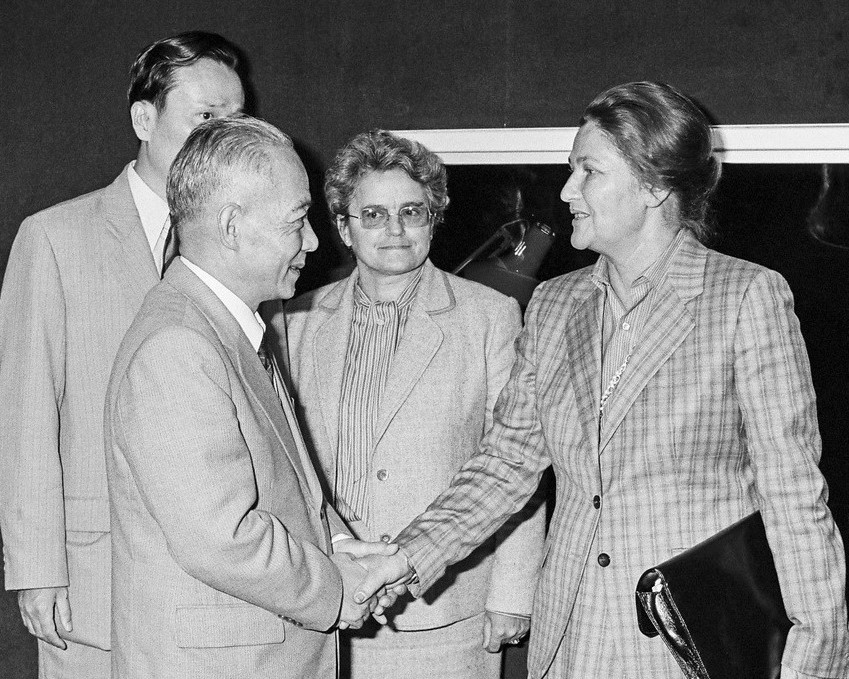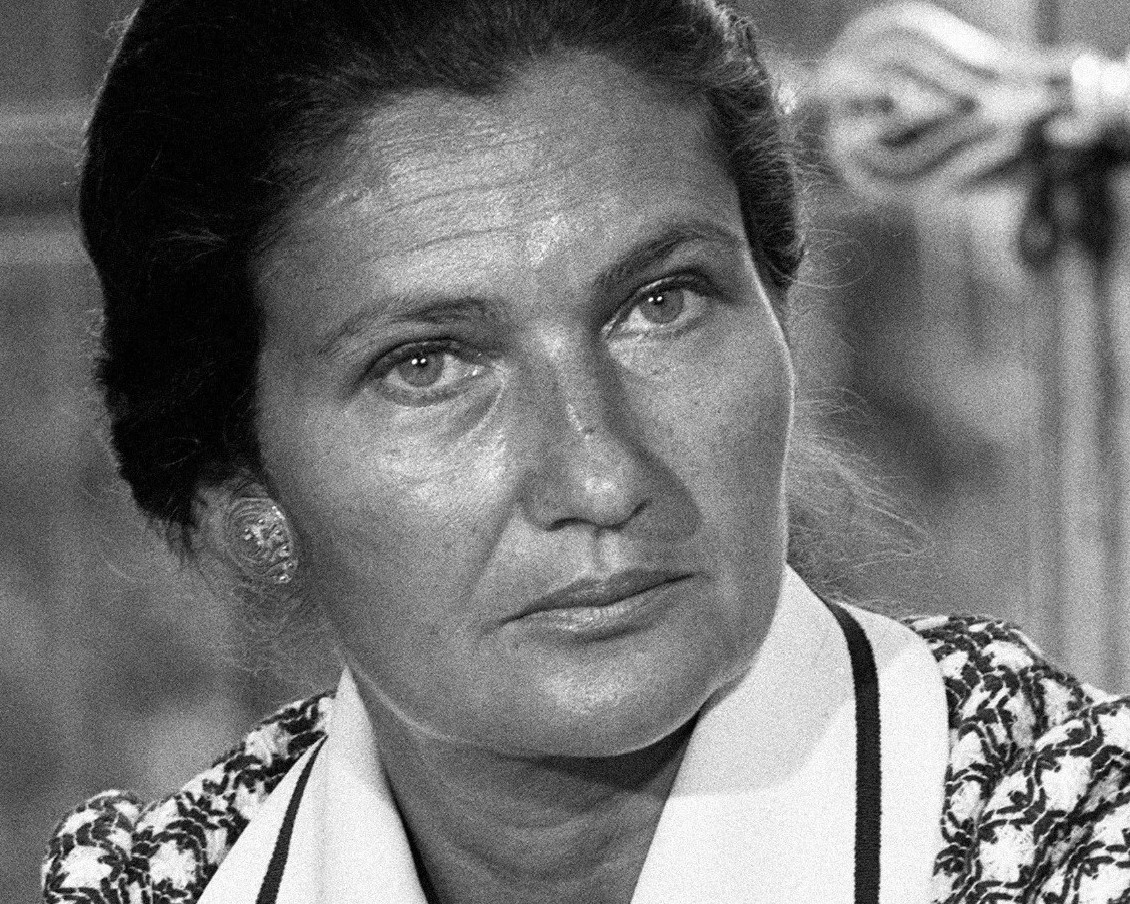Full name:
Simone Annie Liline Jacob

"Holocaust survivor and first female President of the European Parliament"
Simone Annie Liline Jacob
13 July 1927, Nice, France
30 June 2017 (aged 89), Paris, France
- Simone Veil
Simone Veil was one of the few women who were members of the Académie Française. She had three things engraved on the ceremonial sword which is made for each member of the academy. These were: her Auschwitz tattoo number, 78651; the French Republic motto, 'Liberty Equality, Fraternity'; and the motto of the European Union, 'United in Diversity'.

Simone Veil as President of the European Parliament, in the Strasbourg plenary chamber, 1980

Visit of Chen Pixian, Secretary of the Communist Party of China, to the European Parliament in Strasbourg, 1983

Portrait of Simone Veil